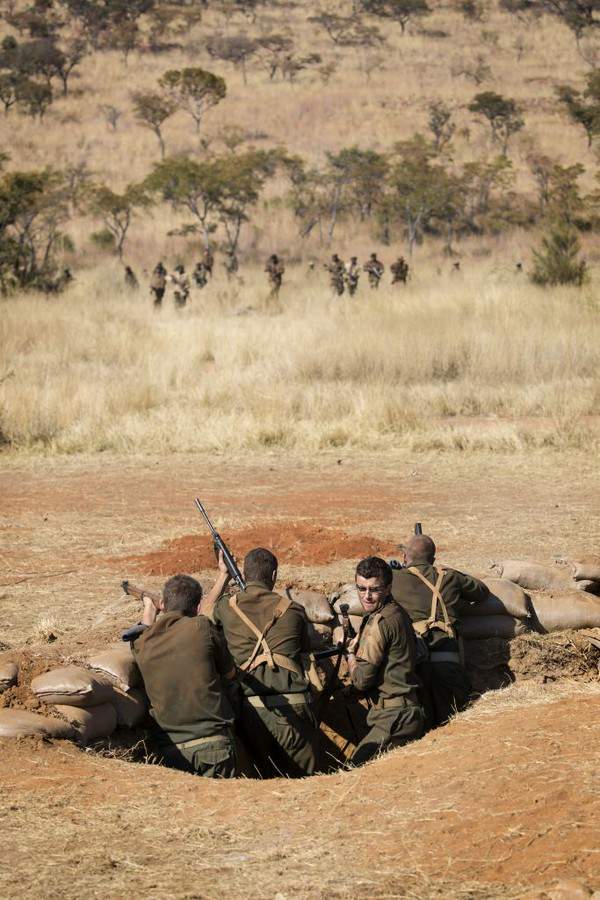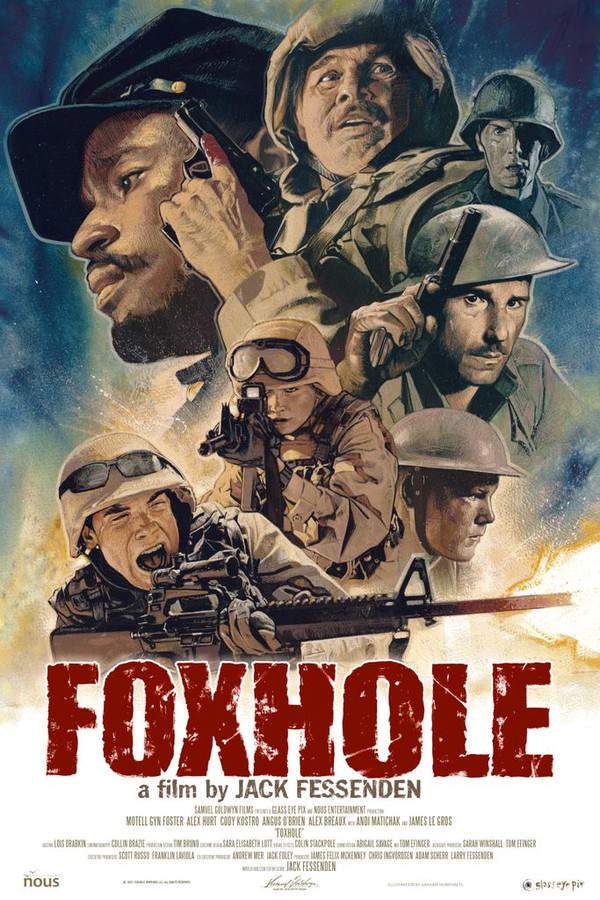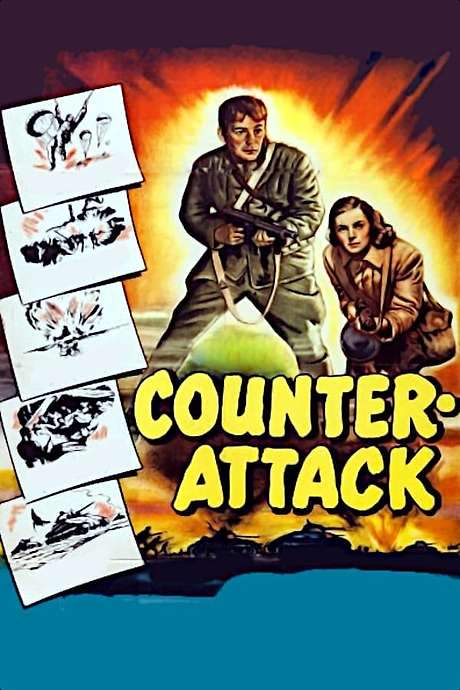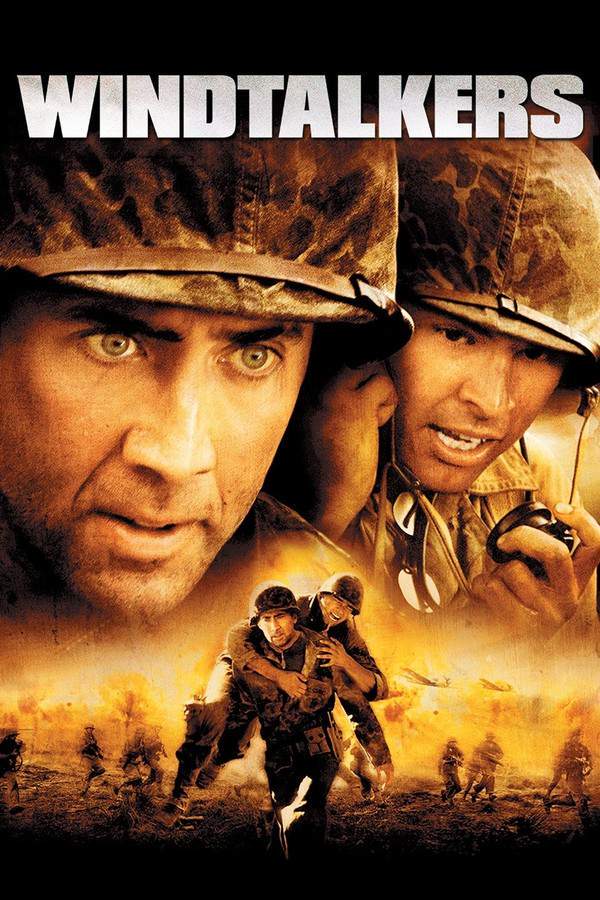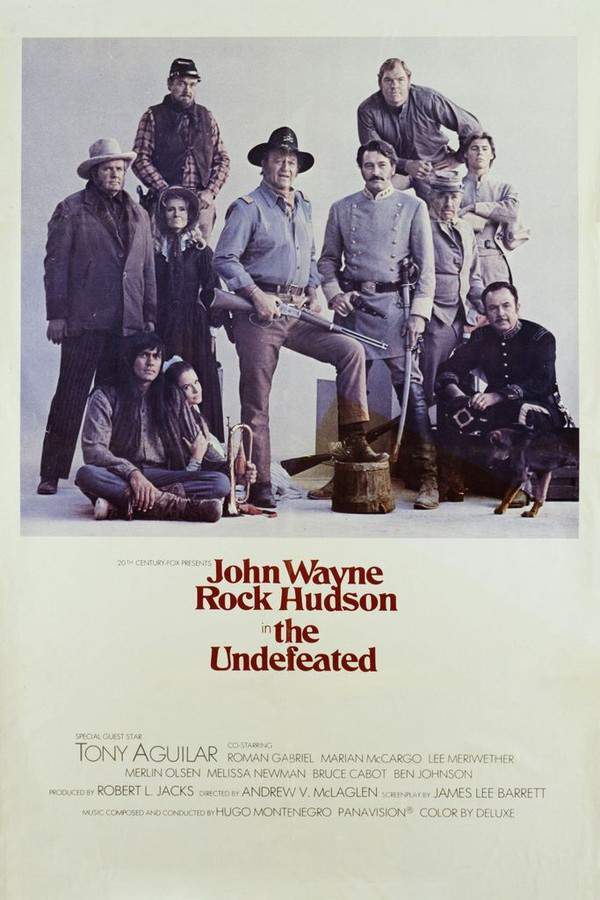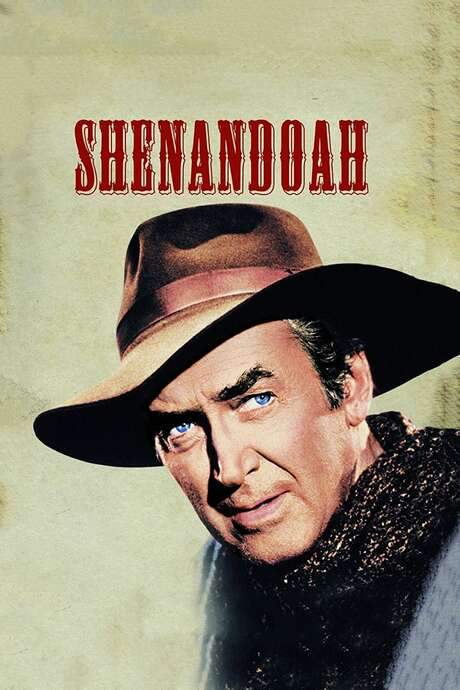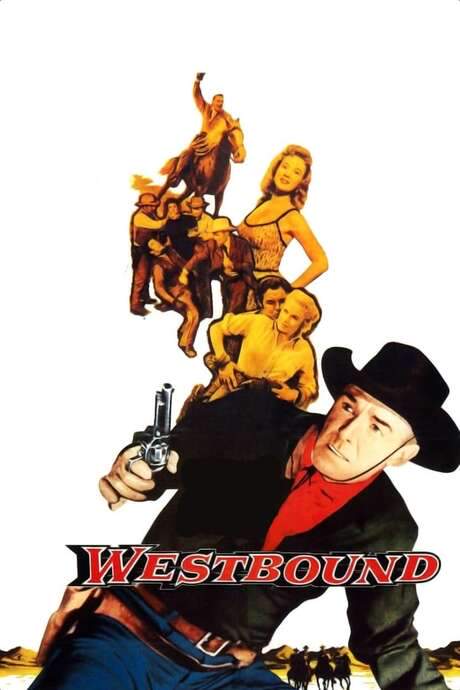
Two Flags West
Year: 1950
Runtime: 92 mins
Language: English
Director: Robert Wise
UNFURLS THE BANNER TO HIGH ADVENTURE! A group of confedarate prisoners is sent to a unionist fort in the west to help the local garrison to fight the indians.
Warning: spoilers below!
Haven’t seen Two Flags West yet? This summary contains major spoilers. Bookmark the page, watch the movie, and come back for the full breakdown. If you're ready, scroll on and relive the story!
Two Flags West (1950) – Full Plot Summary & Ending Explained
Read the complete plot breakdown of Two Flags West (1950), including all key story events, major twists, and the ending explained in detail. Discover what really happened—and what it all means.
Autumn 1864 finds the remnants of the Confederate 5th Georgia Cavalry as prisoners of war in the Union prison camp at Rock Island, Illinois. The men are racked by illness and kept in dire, unsanitary conditions, yet a glimmer of survival appears when Union Captain Mark Bradford, Cornel Wilde, offers them release from what one prisoner calls a “this stinking pesthole” if they will join the Union Army to garrison a frontier fort. The outpost is Fort Thorn, in the harsh reaches of New Mexico, a small, understrength post where the regulars have been sent east, leaving only greenhorns or casualties to face the dangers beyond. The harsh choice is to serve a cause they once fought against, and the decision to accept is settled by a tie-breaking vote that is broken when Col. Clay Tucker, Joseph Cotten, much to his own reluctance, agrees to the terms to save his men.
The Georgians’ transfer to Fort Thorn brings them into the crossfire of old loyalties and new dangers. Major Henry Kenniston, Jeff Chandler, commands the fort with a stern, wounded gait—a limp that marks him as someone who has seen too much. He treats Tucker with a mix of command and condescension, and the social tension is sharpened by Tucker’s dining with Kenniston, his widowed sister-in-law Elena Kenniston, and other civilian guests. Elena, Linda Darnell, is wary of Kenniston’s protective attitude, sensing that he sees himself as a surrogate for her late husband’s memory. Tucker, who once led the cavalry charge that killed Elena’s husband, feels the weight of that past as the two factions spar over discipline, pride, and duty.
The atmosphere at Fort Thorniss is strained from the start. Northern and Southern soldiers clash in temperament and tactics, and when Tucker’s unit attempts to pursue a band of Indians, they are ordered to halt, and Kenniston warns them that they may be walking into an ambush. Tucker challenges the orders, and the tension deepens as the fort assigns two civilians convicted of gunrunning—actually Confederate agents—for punishment. Tucker objects to what he regards as a violation of their enlistment but finds himself outmaneuvered. As events unfold, Ephraim Strong, a civilian who conceals his Confederate allegiance, Harry von Zell engineers a plan to link California to the South and, more importantly, to keep Tucker from deserting. He nudges Tucker toward a dangerous compromise: instead of deserting, Tucker should escort a wagon train through hostile terrain and then return to Fort Thorn with Elena, thereby winning Kenniston’s trust. Elena’s daring escape in a concealed wagon adds another layer of suspense to the plot, though Tucker ultimately agrees to the risky arrangement.
The situation becomes even more perilous when Kenniston orders Tucker to carry out a controversial act: the execution of a Kiowa warrior, the son of chief Satank, whom Kenniston brands a “rebel and traitor.” Tucker is then ordered to join the Confederates and Bradford is taken prisoner. He is escorted back to the fort, only to return with alarming news—the fort is under siege by hundreds of Kiowa warriors. Despite serious misgivings, Tucker resolves to move back to Fort Thorn and fight alongside Bradford’s men to hold the line until nightfall can bring relief. The standoff tests every nerve as they struggle to defend the garrison against overwhelming odds, and Bradford is killed during the fighting.
In the aftermath, Kenniston makes a final, sacrificial gesture by stepping aside and handing command to Tucker, recognizing that the fort’s survival now depends on Tucker’s leadership. A dispatch rider brings the long-awaited news that Gen. Sherman has completed his march to the sea, a signal that the Confederacy’s cause has become untenable. The victory is tempered by loss and fatigue, but Elena offers a quiet, human counterpoint to the devastation: she comforts Tucker and holds out the hope that tomorrow may bring better days.
Throughout, the atmosphere is dense with moral ambiguity, loyalty, and courage. Tucker’s arc—from reluctant sacrificer to a commander trusted to guide his men under fire—forms the emotional core of the story, while Kenniston’s stubborn rigidity and Elena’s quiet resilience illuminate the personal costs of war. The fort, the frontier, and the fractured loyalties of soldiers on opposite sides of a divided nation become a crucible in which endurance is tested, and where the human spirit sometimes finds a way to endure beyond the immediate battles.
“this stinking pesthole”
“greenhorns or casualties”
Last Updated: October 09, 2025 at 11:18
Explore Movie Threads
Discover curated groups of movies connected by mood, themes, and story style. Browse collections built around emotion, atmosphere, and narrative focus to easily find films that match what you feel like watching right now.
Claustrophobic Siege Movies Like Two Flags West
Forced partnerships face overwhelming threats in a confined space.Discover more movies like Two Flags West where bitter enemies must form a tense alliance against an overwhelming threat. If you enjoyed the grim survival and forced cooperation in Two Flags West, you'll find similar narratives of grudging respect and high-stakes conflict in these films.
Narrative Summary
The narrative follows a group of characters—often prisoners, soldiers, or survivors from opposing sides—who are trapped together. An external siege or threat forces them to set aside their differences, but the tension of their shared history and conflicting loyalties continuously threatens to shatter their precarious unity.
Why These Movies?
Movies in this thread share a focus on high-tension scenarios born from forced cooperation. They blend the pressure-cooker feel of a confined setting with the complex moral dynamics of an uneasy alliance, resulting in stories that are as much about internal psychological conflict as they are about external survival.
War Stories With Bittersweet Endings Like Two Flags West
Stories where victory is haunted by personal loss and moral cost.Explore films similar to Two Flags West that explore the heavy emotional toll of war. If the blend of historical conflict, stoic characters, and a victory tempered by loss resonated with you, this collection of bittersweet military and Western dramas will match that somber, thoughtful vibe.
Narrative Summary
Characters are driven by a strong sense of duty or survival, but the narrative emphasizes the cost of their actions. The journey involves hard choices, the death of comrades, and the erosion of ideals. The conclusion may achieve a strategic goal, but it leaves characters—and the audience—with a sense of hollow victory and lingering grief.
Why These Movies?
These films are grouped by their shared exploration of war's true cost. They prioritize emotional weight over action, featuring stoic characters in morally complex situations and concluding with endings that are poignant and reflective rather than purely celebratory, creating a powerful, melancholic resonance.
Unlock the Full Story of Two Flags West
Don't stop at just watching — explore Two Flags West in full detail. From the complete plot summary and scene-by-scene timeline to character breakdowns, thematic analysis, and a deep dive into the ending — every page helps you truly understand what Two Flags West is all about. Plus, discover what's next after the movie.
Two Flags West Timeline
Track the full timeline of Two Flags West with every major event arranged chronologically. Perfect for decoding non-linear storytelling, flashbacks, or parallel narratives with a clear scene-by-scene breakdown.

Characters, Settings & Themes in Two Flags West
Discover the characters, locations, and core themes that shape Two Flags West. Get insights into symbolic elements, setting significance, and deeper narrative meaning — ideal for thematic analysis and movie breakdowns.

Two Flags West Spoiler-Free Summary
Get a quick, spoiler-free overview of Two Flags West that covers the main plot points and key details without revealing any major twists or spoilers. Perfect for those who want to know what to expect before diving in.

More About Two Flags West
Visit What's After the Movie to explore more about Two Flags West: box office results, cast and crew info, production details, post-credit scenes, and external links — all in one place for movie fans and researchers.

Similar Movies to Two Flags West
Discover movies like Two Flags West that share similar genres, themes, and storytelling elements. Whether you’re drawn to the atmosphere, character arcs, or plot structure, these curated recommendations will help you explore more films you’ll love.
Explore More About Movie Two Flags West
Two Flags West (1950) Scene-by-Scene Movie Timeline
Two Flags West (1950) Movie Characters, Themes & Settings
Two Flags West (1950) Spoiler-Free Summary & Key Flow
Movies Like Two Flags West – Similar Titles You’ll Enjoy
The Undefeated (1969) Full Movie Breakdown
Into the West (1000) Complete Plot Breakdown
A Reason to Live, a Reason to Die (1972) Detailed Story Recap
The Last Frontier (1955) Film Overview & Timeline
Major Dundee (1965) Plot Summary & Ending Explained
Shenandoah (1965) Full Summary & Key Details
Rocky Mountain (1950) Story Summary & Characters
Westbound (1959) Full Movie Breakdown
Union Pacific (1939) Detailed Story Recap
Santa Fe Trail (1940) Plot Summary & Ending Explained
Fort Courageous (1965) Movie Recap & Themes
Fort Apache (1948) Ending Explained & Film Insights
Fort Defiance (1951) Movie Recap & Themes
The Plainsman (1936) Story Summary & Characters
Run of the Arrow (1957) Spoiler-Packed Plot Recap

